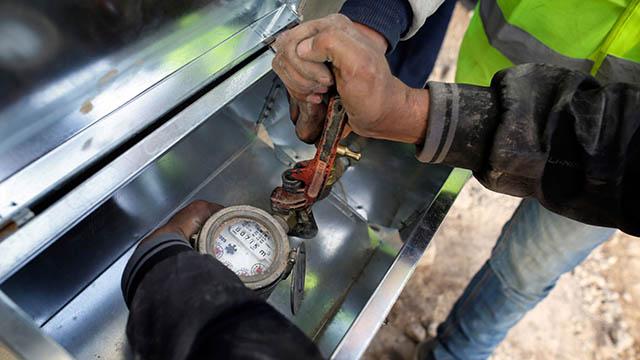- Local News
- Web-2020-05-13 | 02:37 pm

The implementing organisations include Deutsche Gesellschaft für Internationale Zusammenarbeit (GIZ), Kreditanstalt für Wiederaufbau (KfW) and Bundesanstalt für Geowissenschaften und Rohstoffe (BGR), according to an embassy press release made available to The Jordan Times.
KfW and GIZ have provided a total of seven million euros in emergency aid from funds of the German Federal Ministry for Economic Cooperation and Development (BMZ).
The money is being used to purchase and install equipment and spare parts relevant to operations, which KfW is financing.
Local municipalities and mosque communities are also being directly supplied with hygiene articles such as protective masks and disinfectants.
GIZ supports the Yarmouk Water Company, which is the water supplier responsible for the northern parts of the country, in chlorinating the wastewater in its treatment plants. This guarantees that germs and viruses are prevented from spreading via wastewater, the press release noted.
GIZ is also advising water utilities on how to reopen their customer centres in compliance with protective measures, also with a view to increasing the revenues of the water sector and explicitly taking into account the financial means of the customers.
In order to meet the increased water demand in the short term, BGR advises the water utilities on the efficient operation of drinking water wells, according to the press release.
To secure the drinking water supply of the Zaatari refugee camp, BGR is investigating a heavily contaminated aquifer. In addition, BGR supports water laboratories with protective equipment and new analytical instruments in monitoring drinking water quality.
In the future, the joint work will also focus on making Jordan's water sector more crisis-resistant, the press release noted.
Germany is Jordan's second largest bilateral donor and supports the country with around half a billion euros annually. In 2019 alone, the German Government made new commitments totalling 880 million euro, concluded the press release.









